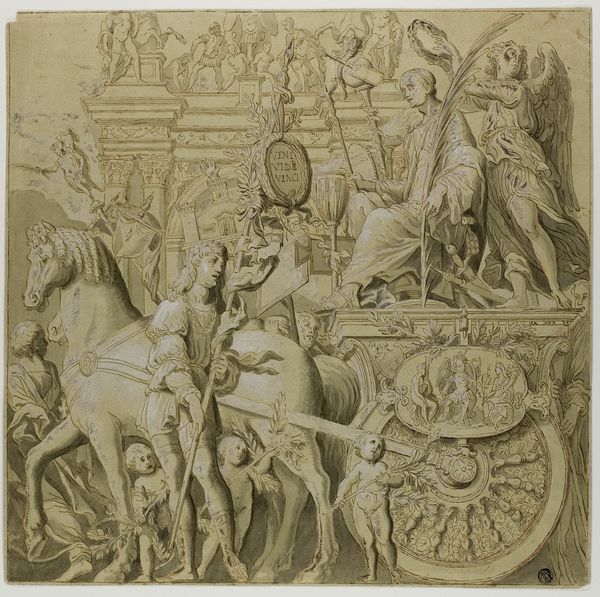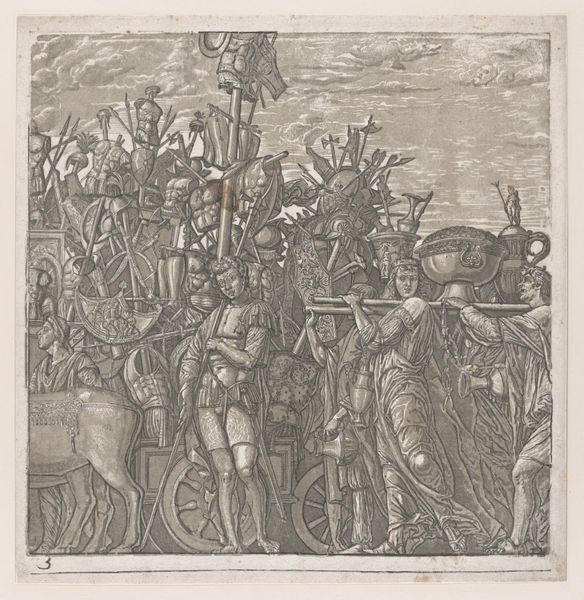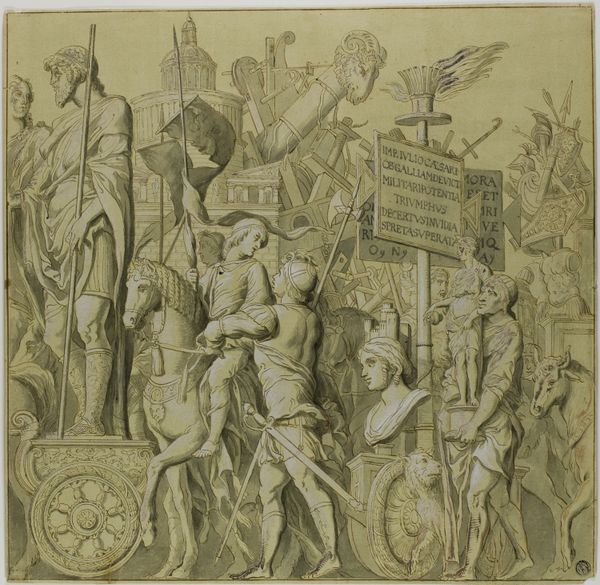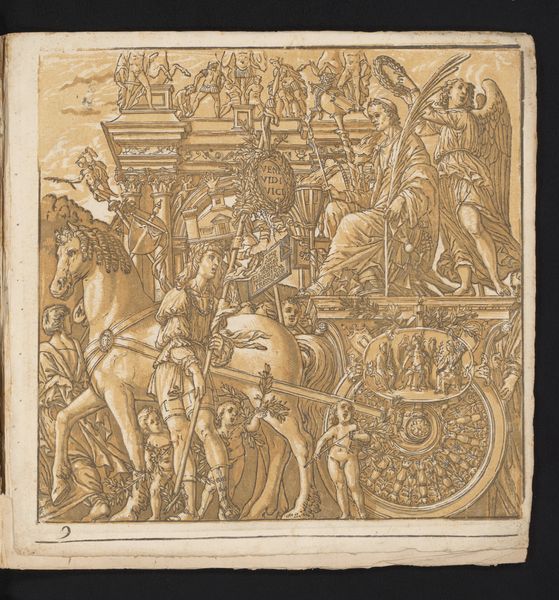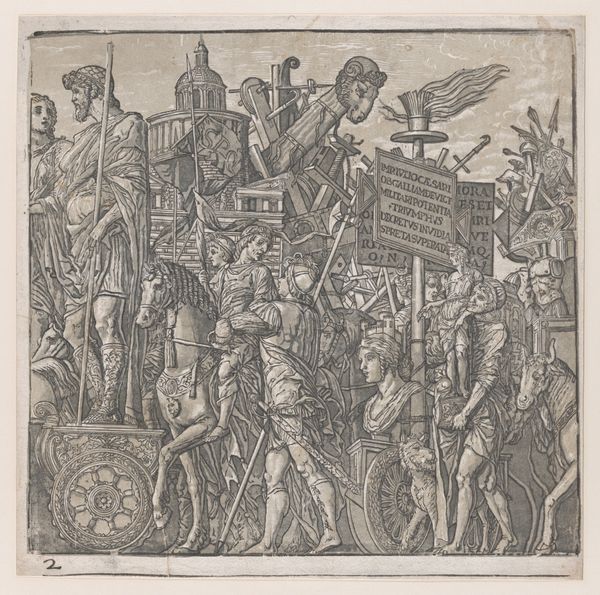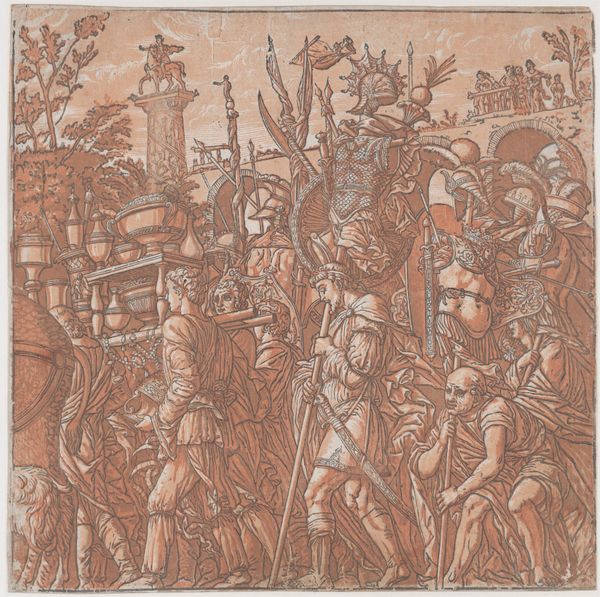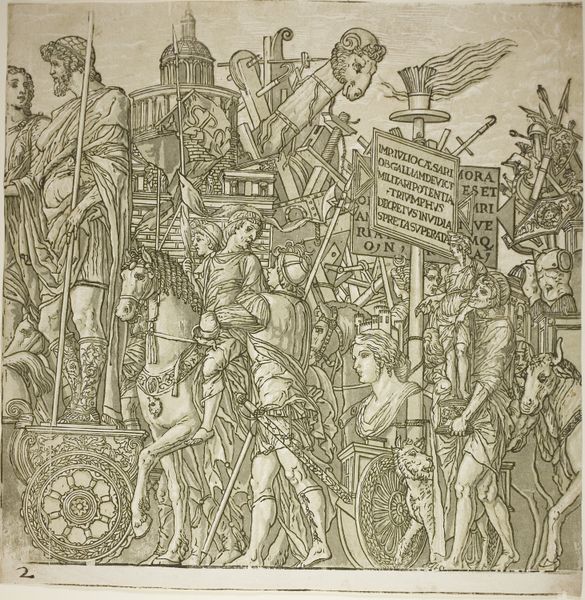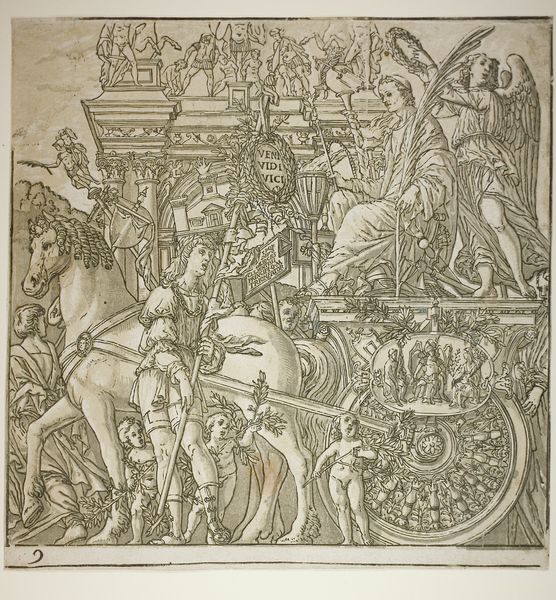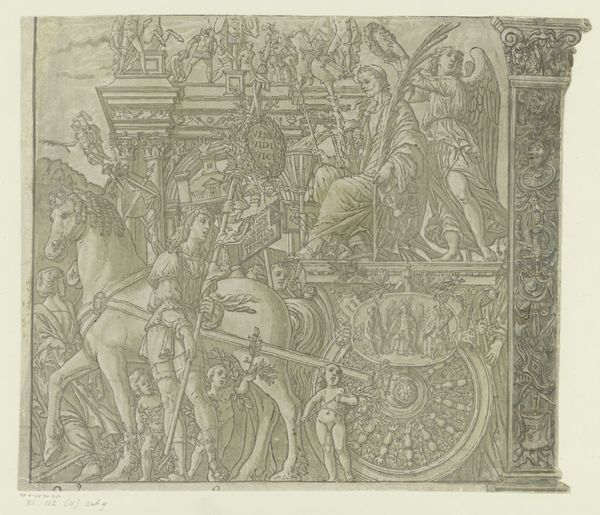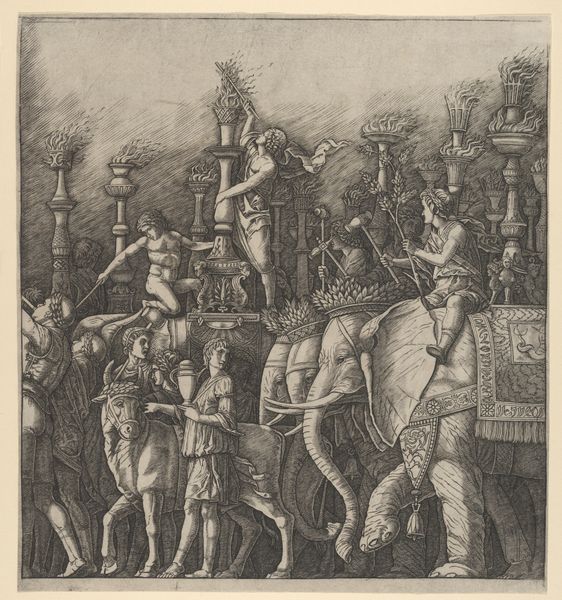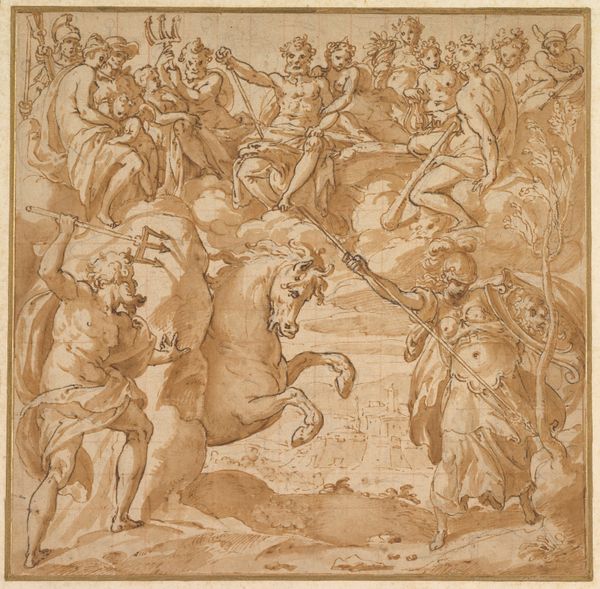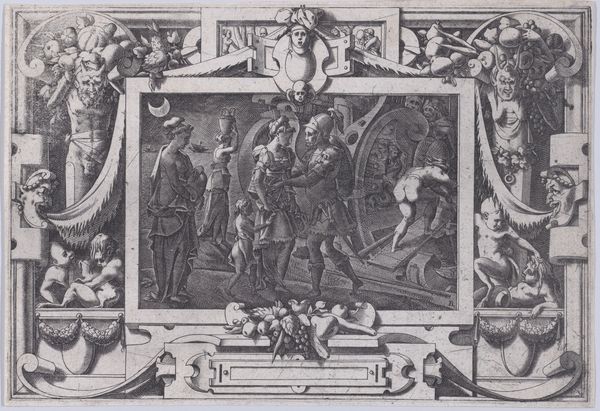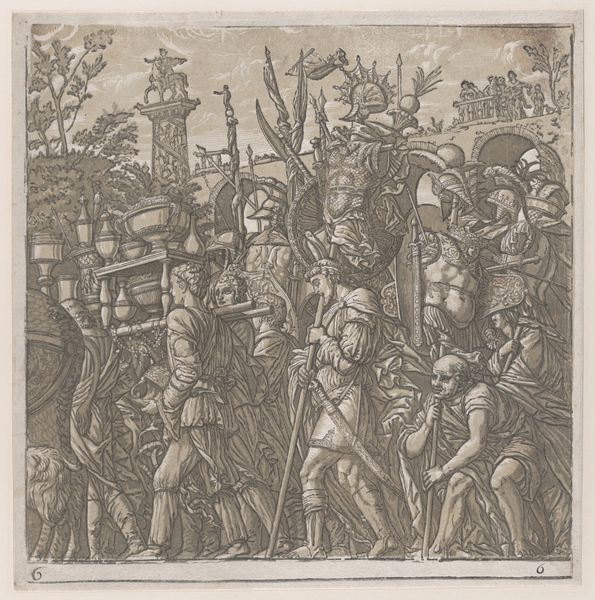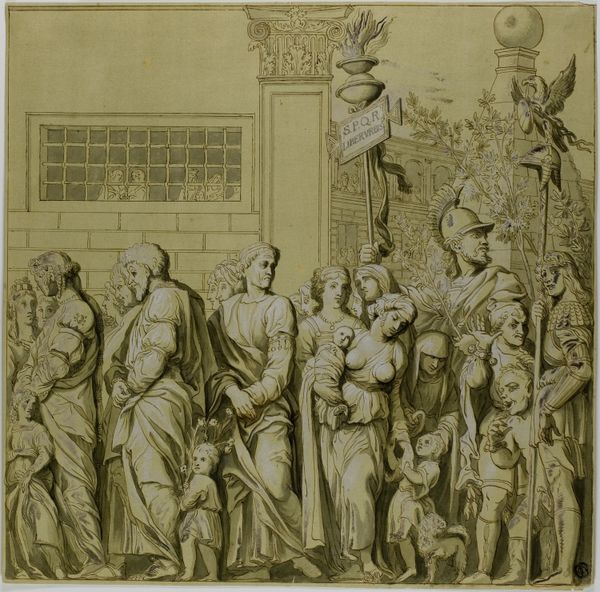
Sheet 9: Julius Ceasar in his horse-drawn chariot, from "The Triumph of Julius Caesar" 1599
0:00
0:00
drawing, print, engraving
#
drawing
#
allegory
# print
#
landscape
#
classical-realism
#
figuration
#
horse
#
men
#
line
#
history-painting
#
italian-renaissance
#
engraving
Dimensions: Sheet: 15 7/8 × 15 1/2 in. (40.3 × 39.3 cm) Image: 14 9/16 × 14 3/4 in. (37 × 37.5 cm)
Copyright: Public Domain
Editor: This is Andrea Andreani’s “Sheet 9: Julius Caesar in his horse-drawn chariot, from 'The Triumph of Julius Caesar',” created in 1599. It’s currently housed at the Metropolitan Museum of Art. The details are incredible, but I am overwhelmed by its complexity! How would you approach interpreting a piece like this? Curator: The 'Triumph of Caesar' series holds immense socio-political weight, particularly in how it shaped the image of power and victory during the Renaissance. Consider the source. Andreani is reinterpreting an earlier work by Mantegna. So why revisit it? Editor: Perhaps to glorify leadership or to connect with the power of the Roman Empire? Curator: Exactly! And who would commission or value such a print? Think about the rise of powerful families and the desire to emulate classical Rome to legitimize their rule. The print becomes a tool for projecting an image of strength and inherited authority. Notice how Caesar is framed - enthroned and almost god-like. How does that connect to the way rulers wanted to be seen? Editor: That’s interesting! It does feel very staged, carefully constructed to promote a specific image, it's propaganda! It shows the importance of understanding how art functions within its political context. I definitely see more in this piece now. Curator: Precisely. It’s not just about the artistry but how art serves social and political purposes and how cultural memory can be invoked to convey power. Examining such pieces is essential to unraveling history.
Comments
No comments
Be the first to comment and join the conversation on the ultimate creative platform.
